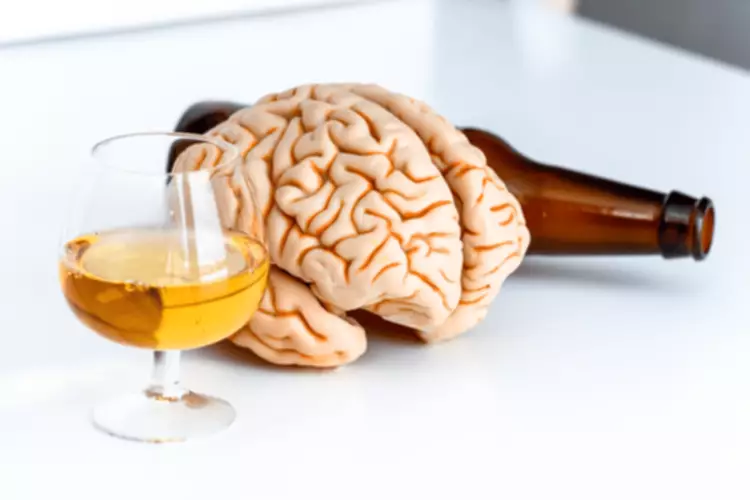
If you or a loved one has relapsed—or you’re simply ready to learn more about your options—AAC can help. Addiction is a lifelong condition, but that doesn’t mean using substances has to continue after treatment. Dr. Ashish Bhatt, MD, talks aftercare, the importance of a TEAM, and why receiving treatment once you’ve finished rehabilitation is key. Conversely, a relapse occurs as a person goes back to a previous pattern of substance abuse, for days or weeks at a time. A person will also regress away from others and dismiss aftercare commitments. This lack of self-recognition and process of self-discovery can be overwhelming and be further weighed down by the typical feelings of shame and guilt that are common in recovery.
- Wanting to get help early into a relapse saves many addicts from the same horrors that they got sober from.
- Completing your education, learning new skills, or gaining vocational training boosts your employability and sense of self-worth, key factors in sustaining recovery.
- While we are unable to respond to your feedback directly, we’ll use this information to improve our online help.
- Rehab can provide treatment programs to offer the skills, techniques, and guidance to stop using drugs or alcohol successfully.
Healing Relationships

There are countless hobbies to pursue, whether you’re looking for a creative outlet or to simply relax. Take the time to explore different types of hobbies and discover which are most beneficial for your own mental and emotional wellbeing. Remember that it will take time to fully recuperate and rebuild relationships. Understand that full recovery and repair will not happen overnight. Your recovery is a work in progress and it’s best to take it one step at a time. Set realistic expectations about how much you can accomplish during the weeks after rehab.
Insurance
For some patients, life can become overwhelming and even frightening when leaving rehab. This is https://ecosoberhouse.com/article/why-cant-i-cut-down-or-control-my-drinking/ where a recovery coach can support a patient in their transition back into normal daily life. There are several benefits to working with a recovery coach, including continued assistance with your aftercare plan. This reflection time should also include reminding yourself about what you’ve learned in rehab and all the reasons why you are choosing to stay sober. These periods of reflection can be used as times to intentionally reconnect to your personal commitment to recovery and health. As part of transitioning after rehab, you’ll want to attend community support groups for people who are also on their recovery journey.
A Relapse Is Not Failure
It’s a terrific sign that you realize that and are aware that you have a problem again. This lack of commitment, among other factors, is often cited for the “revolving door syndrome,” or a cycle of treatment, relapse, and a return to treatment. A person might be ambivalent about recovery, seeking treatment not for themselves but for external reasons. When you stopped using drugs, you were accustomed to the number of drugs you were using after building a tolerance. If you relapse and begin using drugs again, you may attempt to use the same amount of a substance that you could handle before getting sober. A higher tolerance can lead you to use more drugs or drink more alcohol to experience the desired effects.

Treatment
- Make a pact with yourself that no matter what, no matter how tough the going gets, you won’t back down.
- But going to treatment means entering an unfamiliar space at a vulnerable time.
- Each treatment center typically has a list of things to bring and to leave at home, so you’ll want to make sure you have this list handy as you’re packing.
- But it’s important to seek help before you experience a complete relapse and no longer have the ability to reason through your decision.
- Dr. Saman started content writing to blend her passion for writing and medicine with her extensive clinical experience.
- “Yeah there’s going to be some punch back on that, no doubt about it.”
- Right now, you might be on what feels like a never-ending Ferris wheel of using and quitting, using, and quitting, and so on.
A “slip” is usually when a person has slipped into misusing a drug or alcohol. When a “slip” occurs, the person typically sees this as a negative and doesn’t continue on a path back toward addiction. Finally, do not let the idea of failure keep you from working on yourself. While many equate relapse and going back to rehab to failure, these things are nothing to be ashamed of! Also, do not let the fear of what other people are going to say keep you from bettering yourself. At the end of the day, only you know your limits and what you need to stay sober, and it is up to you to make that decision.
If you have relapsed and decided going back to rehab is your best course of action, it is important to be aware that your treatment plan may need to be adjusted this time around. You may also begin to experience a less robust normal release of dopamine in response to natural rewards like eating, exercise, or sex. Write in a journal about how far you’ve come, the ways in which you are growing, how you’re occupying your time and the types of feelings you’re experiencing.
More importantly, getting help could mean the difference between life and death, and your life is far more important than going back to rehab what others think of you. If your friends think there is a good reason for you to return to treatment, they may give you a more honest appraisal of your situation. It takes much work, and often several therapy sessions, for many individuals in recovery to remain clean. Treatment centers may also have different stipulations regarding electronics such as mobile phones, laptops, and tablets. Make sure to review the facility’s cellphone and electronics policy before you go. Some facilities might also recommend items related to their amenities.
- If you or a loved one has relapsed—or you’re simply ready to learn more about your options—AAC can help.
- By acknowledging that these are all normal feelings people face when transitioning after rehab, you can start to accept these challenges and prepare to deal with them.
- If every party, every gathering and every event in your past life involved drugs or alcohol, it may feel weird at first to join in the festivities without a drink in your hand.
- Look at the specific skill sets you have to offer and determine the best ways you can put them to use.
- Please reach out to a treatment provider if you need help finding a rehab after relapse.
The goal of rehabilitation is to help those with alcohol addictions find their way back to a productive, functioning life. By counteracting addiction’s powerful disruptive effects on the brain and overall behavior, those struggling with an AUD can one day return to their family, workplace, and community. Those who receive treatment are likely to decrease their chances of participating in criminal activity and improve the occupational, social, and psychological aspects of their life.

When you get back in rehab, you can defeat addiction all over again and feel proud of it. If you or a loved one experienced a relapse after a period of sobriety from drugs and alcohol, you can benefit from an addiction treatment program. Avoiding going back to rehab could cost you your life, making this decision imperative for your safety. After detox, treatment will include identifying triggers, learning how to manage cravings, and creating a support network to help you stay on track.